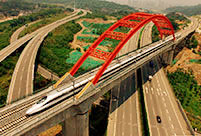

 |
| File photo |
When Chinese Premier Li Keqiang walked into a café a month ago in Beijing's Zhongguancun - China's answer to the Silicon Valley - the startup community in the country received a huge boost. The café is an Internet and entrepreneurship-themed community where startup owners and entrepreneurs-wanna-bes usually hang out.
It was not the first time that startups have been endorsed in China. The Chinese government pledged to encourage innovation and new businesses in the annual legislative meeting held in March. Following that, various local governments have earmarked funds to support emerging entrepreneurs. Startups in China are experiencing a new boom.
Who are the entrepreneurs?
A total of 4.854 million new companies were registered from March last year to May this year, equaling to 10,600 new businesses per day or seven every minute.
The wealthiest regions in the country, like the cities in the Yangtze River Delta, the Pearl River Delta and Beijing, are home to the most startups, followed by southwestern cities such as Chongqing and Chengdu.
The southern Chinese city Shenzhen, which was at the forefront of the country's reform more than 30 years ago, has the biggest concentration of entrepreneurs. One in six of the local residents are startup owners. The figure is one tenth in Qingdao City in Shandong Province. The Metropolises Shanghai and Beijing rank tenth and sixteenth respectively.
This new startup boom includes a mixture of people, including Chinese who have studied abroad and returned to China, people who quit their jobs to start their own businesses, migrant workers who have gone back to their hometown and started their own business, and university students, according to Gu Shengzu, a prominent economics expert and official.
When it comes to the investment and financing volume, Beijing, Shanghai, Guangdong Province and Zhejiang Province are the most active -- they posted US$6.972 billion, US$1.546 billion, US$1.613 billion, and US$1.096 billion in investment and financing in 2014 respectively.
Half of startups are Internet companies
"The Internet industry has attracted the most entrepreneurs in Beijing. Large projects have already been acquired by BAT (Baidu, Alibaba and Tencent), so many are eyeing the transformation of traditional industries (with the help of the Internet)," said Zhu Guilin (pseudonym), a startup entrepreneur who quit his job at Microsoft two years ago.
The Internet industry is the vanguard of the boom, demonstrated by the higher-than-average number of newly registered businesses and investment volume.
Data shows that investment in the Internet industry was less than US$100 million in 2012, but that number skyrocketed to more than US$6 billion in 2014, accounting for 49 percent of the entire investment in startups.
China's red hot capital market has also played up the boom. Angel investors and venture capital funds, which have benefitted from the capital market, are pouring money into startups.
Angel investment institutions invested in a total of 766 projects last year, an increase of 353 percent year on year. The investment money amounted to US$526 million, a year-on-year increase of 161.7 percent, and the trend has shown no sign of abating.
Some scholars and industry insiders have warned about the potential risks of the boom, including the high failure rate of startups and the ensuing bankruptcies and bad loans. But entrepreneurs like Zhu Guilin are optimistic. "The startup boom is not like the bubble in the real estate industry or the stock market. Though bubbles may emerge, entrepreneurs will have honed their skills and therefore contribute to economic development as well," Zhu said.
 School life of students in a military college
School life of students in a military college PLA soldiers operate antiaircraft guns in drill
PLA soldiers operate antiaircraft guns in drill Mysterious “sky road” in Mount Dawagengzha
Mysterious “sky road” in Mount Dawagengzha J-11 fighters in air exercise
J-11 fighters in air exercise Top 16 Chinese cities with the best air quality in 2014
Top 16 Chinese cities with the best air quality in 2014 PLA helicopters travel 2,000 kilometers in maneuver drill
PLA helicopters travel 2,000 kilometers in maneuver drill PLA soldiers conduct 10-kilometer long range raid
PLA soldiers conduct 10-kilometer long range raid Stars who aced national exams
Stars who aced national exams
 Hefei-Fuzhou railway line put into trial operation
Hefei-Fuzhou railway line put into trial operation Pain lingers as nation mourns lost lives
Pain lingers as nation mourns lost lives The social media breakup
The social media breakup Parents willing to pay millions for substitute gaokao takers
Parents willing to pay millions for substitute gaokao takers Mind the gaps: Post-70, 80 and 90 generations
Mind the gaps: Post-70, 80 and 90 generationsDay|Week